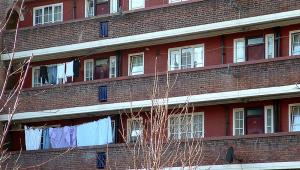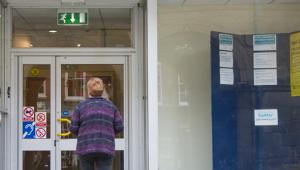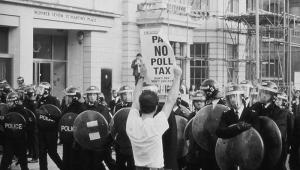The charity today published analysis arguing that the real terms cuts to working-age benefits and tax credits – imposed before Theresa May became prime minister – will drive almost half a million more people into poverty by 2020.
JRF has said in its briefing that the forecast annual inflation means the hit to low income families of the benefits freezers – and so savings for the Treasury – will be almost £0.9bn more than the £4bn expected in 2020/21.
In 2015 the former chancellor George Osborne froze most working-age benefits for four years, including benefits to top up low wages and out of work benefits, from 2016/17 to 2019/20.
JRF is calling for the government to “target its resources better at struggling families”.
Rather than increase the personal tax allowance to £12,500 the foundation is urging the government to remove the benefits freeze.
Only £1 in every £6 spent on raising the personal tax allowance goes to the bottom half of the income distribution, while the freeze is the single biggest policy driver behind the expected rise in poverty by the end of the Parliament, according to the charity.
Campbell Robb, chief executive of JRF, said: “People who are just managing at best are being hit in the pocket by the freeze on benefits and tax credits.
“It means millions of families are finding life even harder to make ends meet - whether paying for the weekly food shop, covering energy bills or finding enough money to pay the rent.”
He said the Treasury gets a short-term gain from the freeze but he states children living in poverty costs the exchequer around £6.4bn a year in tax loss revenue and additional benefit spending in the future.
“The focus should be on making sure low-income family budgets keep pace with the cost of essentials, while reducing the benefit bill through increasing employment and enabling people on low pay to increase their earnings,” he argued.
The JRF wants to see the freeze lifted on income related benefits such as tax credits, Universal Credit, the Local Housing Allowance and Job Seekers Allowance, over more widespread benefits such as child benefit.
Uprating income related benefits (not including child benefit) with CPI inflation from 2018/19 would result in 380,000 fewer people in poverty in 2020/21 - it would cost an estimated £2.8bn in 2020/21.
Today’s research from the JRF follows warnings from charities and council housing managers that the roll-out of Universal Credit should be paused amid concerns about its implementation.
At the Conservative party conference the JRF’s head of policy, Katie Schmuecker, stated the organisation was in favour of Universal Credit but warned that there were issues with its potential impact on living standards.
A spokesperon said: “Our reforms mean we have a welfare system that’s fair to those who use it as well as those who pay for it.
“The best way to help people support their families and raise their incomes is to help them into work and we now have record numbers of people in employment.”











